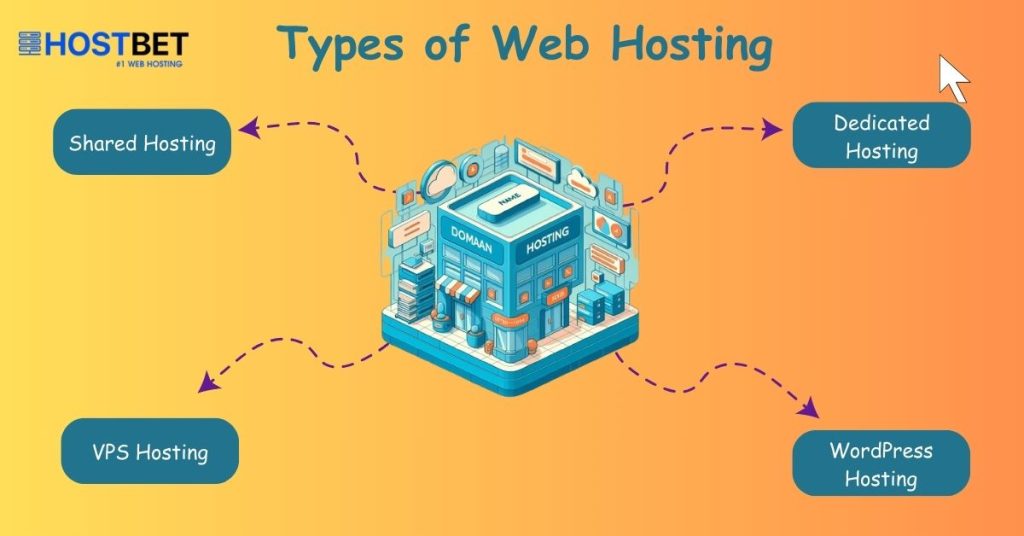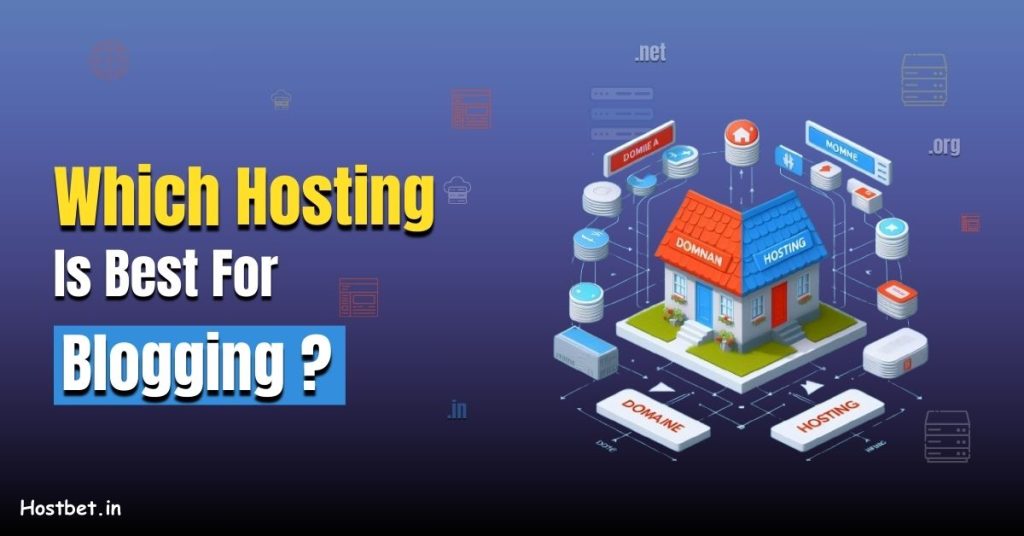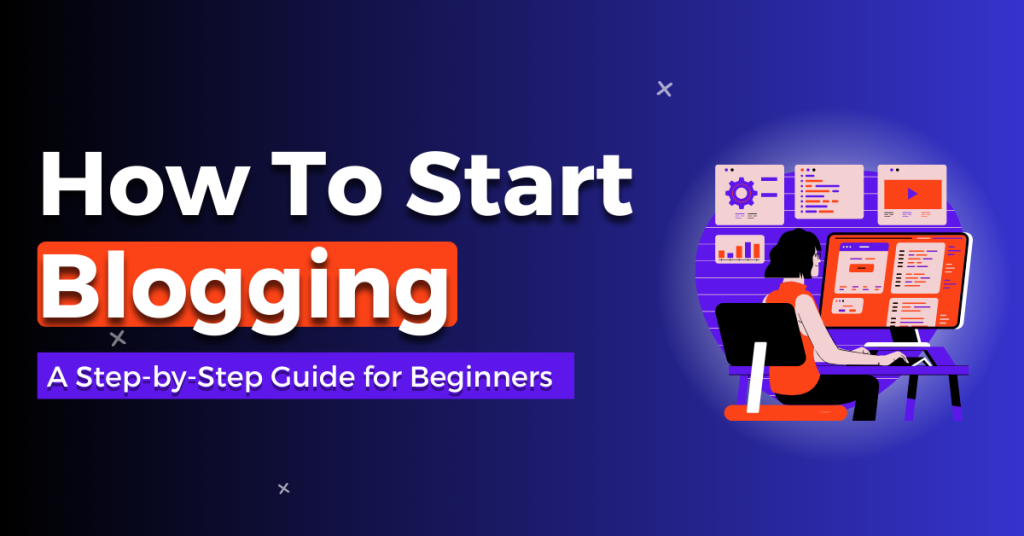Have you ever dreamed of starting a blog and becoming a successful blogger through blogging? Like Darren Rowse [aka Problogger] and Anil Agarwal. But once you think about taking the first step, comes the technical difficulty—choosing the right web hosting.
There are so many types of web hosting services, like shared hosting, VPS hosting, and cloud hosting, and these words may seem like a foreign language, especially to those who are just starting out.
But aspiring bloggers, fear not! This informative guide will help you decide Which Hosting is Best for Blogging.
Understanding Web Hosting: The Powerhouse Behind Your Blog
Starting a blog is an exciting way to share your passions, but before you start to create blog content, you need to choose a solid foundation for your blogging journey: web hosting.
Just like a house needs strong foundations like solid land to stand on, your blog needs a space on the internet for users to be able to access it. This is where web hosting comes in.
Different Types of Hosting: Which Hosting is Best for Blogging?
When it comes to types of web hosting, there are so many hosting options to choose from, each caters to different needs and budgets of users. Let’s look at the most common types:

- Shared Hosting: This is the most usable, affordable, and beginner-friendly hosting option. Multiple websites hosted on the same server use resources.
- VPS Hosting (Virtual Private Server): VPS is an advanced version of shared hosting with more dedicated resources than shared hosting but at a higher cost.
- Dedicated Hosting: The most expensive option is because the entire server is dedicated to one user or website, like having your own personal computer for your website. This means users have full control, power, and resources.
- Managed WordPress Hosting: This is specifically designed and optimized for WordPress websites, offering enhanced performance.
Beyond the Basics: Choosing the Right Hosting Type for Your Blog’s Needs
Shared Hosting: A Beginner-Friendly and Affordable Choice
The first, most popular, and most widely usable type of web hosting. Multiple websites hosted on the same server use resources.
Shared hosting is an affordable and excellent option for small websites and beginner bloggers with low traffic because It’s cost-effective and often comes with user-friendly features like drag-and-drop website builders.
In the initial phase, due to being a new blog, the traffic will be less; hence, beginners should use shared hosting to start blogging.
VPS Hosting: Scalability and Control for Growing Blogs
Once your blog attracts more visitors, shared hosting may be restrictive for your blog due to limited resources, which might lead to performance and loading speed issues during traffic spikes.
VPS hosting can easily handle your blog’s traffic spikes due to its dedicated resources and better control over your server environment, allowing smoother scaling as your blog grows.
Dedicated Hosting: Unmatched Power for Established Blogs
Dedicated hosting is an ideal solution for larger blogs with high traffic demanding exceptional performance, complete control, or specific requirements for blog owners.
The most expensive option is because the entire server is dedicated to one user or website, like having your own personal computer for your website. This means users have full control, power, and resources.
Managed WordPress Hosting: Tailored Performance for Your Blog
WordPress hosting is a type of web hosting specifically designed and optimized to meet the unique needs of the WordPress website, offering a one-click to WordPress installation, automatic updates, security, enhanced performance, specialized support, etc.
Conquer Common Blogging Challenges: A Guide to Success
Now that you understand the types of Web hosting, let’s address some common concerns bloggers face:
Traffic Considerations: Choosing a Hosting Plan for Your Blog’s Needs
Estimate your expected traffic according to your blog niche and choose a hosting plan that can easily handle it. In the initial phase of a low-traffic blog, shared hosting might be an excellent option, while VPS or dedicated hosting might be necessary for high-volume websites.
Budgeting for Your Blog: Balancing Cost and Features
Web hosting costs vary depending on the type and features that hosting providers offer. Before choosing any web hosting plan, you need to keep your budget in mind and start with a plan that fits your budget while offering necessary features like sufficient storage, 24/7 support, SSL certificates, security, and bandwidth. You can always upgrade later if needed.
Ease of Use: Finding Hosting That Fits Your Technical Expertise
Most web hosting providers offer easy-to-use interfaces and 24/7/365 customer support. If you’re a beginner to web hosting, choose a provider known for its ease of use, readily available assistance troubleshooting technical issues, and affordability.
Essential Features for Bloggers: What to Look for in a Hosting Plan
Look for features crucial for bloggers, such as:
- Reliable uptime: Ensure your blog is online and accessible to readers 24/7.
- Sufficient storage (SSD Storage): Sufficient SSD storage would guarantee faster loading times and accommodate your blog’s text, images, and videos without running out of space.
- Unmetered bandwidth: Handle your blog’s traffic spike without incurring bandwidth charges.
- User-friendly control panel: Manage your website and hosting hassle-free, even if you’re a beginner blogger.
- Fast loading speed: Provide a smooth-as-butter browsing experience for your visitors.
- Scalability: Choose a plan that is scalable and can grow with your blog’s increasing traffic and content needs.
- Security features: Protect your website from cyberattacks and data breaches.
- Customer support: Get assistance troubleshooting technical issues with your hosting service.
- SSL certificate: Ensures secure connections between your website and visitors, protecting data transmission.
- Email accounts: Create professional email addresses associated with your blog domain.
Focus on Content, Leave Hosting to HostBet: Reliable Solutions for Bloggers

Whenever a question comes to your mind, which hosting is best for blogging?” When selecting your hosting plan, you should consider prioritizing features essential for a successful blogging career. HostBet understands bloggers’ needs.
HostBet offers reliable uptime, sufficient storage (especially SSD for faster speeds), unmetered bandwidth to cater to future traffic growth, and robust security features for peace of mind. Additionally, their 24/7 customer support provides valuable assistance should you encounter any technical challenges.”
Beyond Hosting: Important Factors for Successful Blogging
While hosting is essential, it’s only one piece of the puzzle. Remember:
- Content is king: Focus on creating high-quality, engaging content that resonates with your target audience.
- SEO optimization: Optimize your blog for search engines to increase organic visibility.
- Marketing and promotion: Promote your blog across various social media platforms.
Final Thoughts on Which Hosting is Best for Blogging?
Now that you’ve explored types of web hosting options and conquered common concerns, you’re well-equipped to answer the important question: Which Hosting is Best for Blogging? By considering various factors like expected traffic, budget, technical expertise, and essential features, you can easily choose the hosting plan that best suits your blog’s needs.
Some Frequently Asked Questions
Which Hosting is Best for Blogging?
As discussed, the “best” hosting depends on your specific needs and stage of blogging.
For beginners: Shared hosting is a great starting point.
For growing blogs: Consider VPS hosting for better handling of traffic spikes.
For established blogs: Dedicated hosting or managed WordPress hosting offers more power and control.
What are the essential features to look for in a hosting plan?
Some crucial features for bloggers include:
Reliable uptime
Sufficient SSD storage
Unmetered bandwidth
User-friendly control panel
Fast loading speed
Scalability
Security features
Customer support
SSL certificate
Email accounts
When should I upgrade from shared hosting?
Upgrade when you experience traffic spikes, require more control or your shared plan feels restrictive.
Which hosting type is best for beginner bloggers?
Shared hosting is often recommended for beginners due to its affordability, ease of use, and sufficient resources for low-traffic websites.

